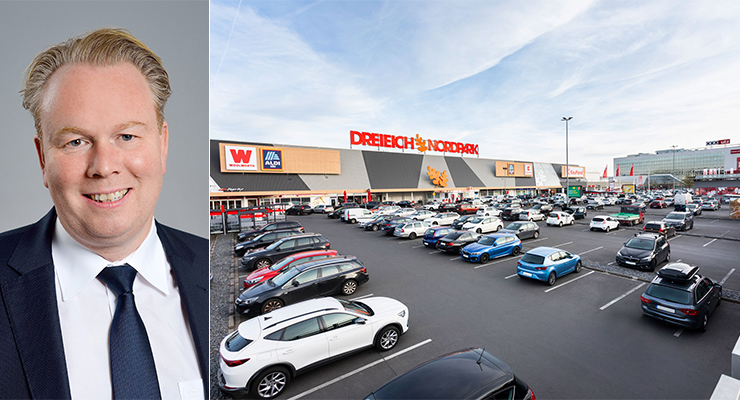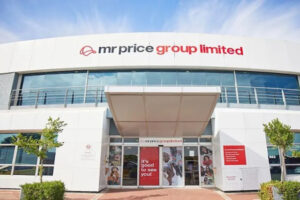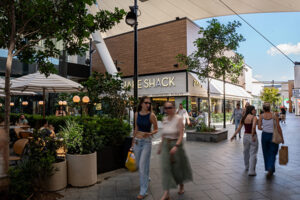By Christian Thiele
Adjusting the tenant mix is of crucial importance for many players in the real estate sector, as consumer behavior and thus the requirements for retail properties have changed considerably. Retail parks have assumed a special role in this regard and have increasingly become the focus of both investors as well as tenants due to their crisisproof structure and local supply orientation.
RETAIL PARKS: THE PREFERRED FORM OF INVESTMENT
Retail parks are more resilient to economic fluctuations and crises due to their specific focus on everyday needs, in particular, due to their high proportion of food retailers – a fact that had become evident even prior to the pandemic. That resilience was reinforced during the coronavirus pandemic, which saw other retail properties, such as large shopping centers and city-center retail spaces, suffer more as a result of lockdowns and changing consumer habits.
According to the 2023/2024 Hahn Retail Real Estate Report, 74% of the institutional investors and financial institutions surveyed claimed that retail parks were key components of their investment strategies. While that figure reflects a slight decrease on the previous year’s 78%, interest in this type of real estate has remained consistently high. The slight downturn is not indicative of diminished attractiveness, but rather the fact that many investors have already consolidated their positions in this sector.
The primary advantage of retail parks lies in their role as local suppliers. They provide people with access to everyday goods and services, which makes them less susceptible to the kinds of consumer trends that affect fashion retail, for example. Their crisis-resilient nature makes them particularly attractive to long-term investors looking for stable returns in a volatile market environment.
Making sure that the right mix is offered and suits the local environment is vital. As a leading operator of retail parks in Germany, MEC has increasingly focused its attention on the continuous adjustment of the tenant mixes of its properties in order to respond to changing market conditions. In 2023, MEC concluded a total of 258 new and follow-up leases, which corresponds to a total area of 172,000 sq m. That is a significant increase on the previous year’s figure of 158,000 sq m. This development clearly shows that retail parks are not only stable in terms of real estate types, but that they are also flexible and can dynamically adjust to new circumstances.
Tenants include major players such as Deichmann, KiK, Woolworth, Kaufland, and Modepark Röther. Such companies ensure the attractiveness of retail parks, as they cover both daily needs as well as more specific demand. However, the challenge to not only fill existing space but to also react to market changes remains, as the example of Dreieich Nordpark illustrates.
DREIEICH NORDPARK: A BLUEPRINT FOR THE FUTURE
Dreieich Nordpark, located approximately 10 kilometers south of Frankfurt am Main, is a good example of how retail parks can be successful in the long term through the clever use of space and flexible tenant concepts. The center, which was completely modernized in 2011/2012 and covers an area of 23,500 sq m, recently underwent a comprehensive realignment of its tenant mix.
In the wake of the insolvency of the Real supermarket chain, MEC was faced with the task of filling the resulting gap. Kaufland took over part of the space formerly occupied by the Real store, thereby securing the food supply. Sporting goods discounter Decathlon decided to reduce its space around the same time. Those changes made it possible for MEC to create additional rental space for other providers. As a result, not only Kaufland, but also Das Futterhaus, Aldi Süd, Woolworth, and Müller Drogerie were acquired as tenants.
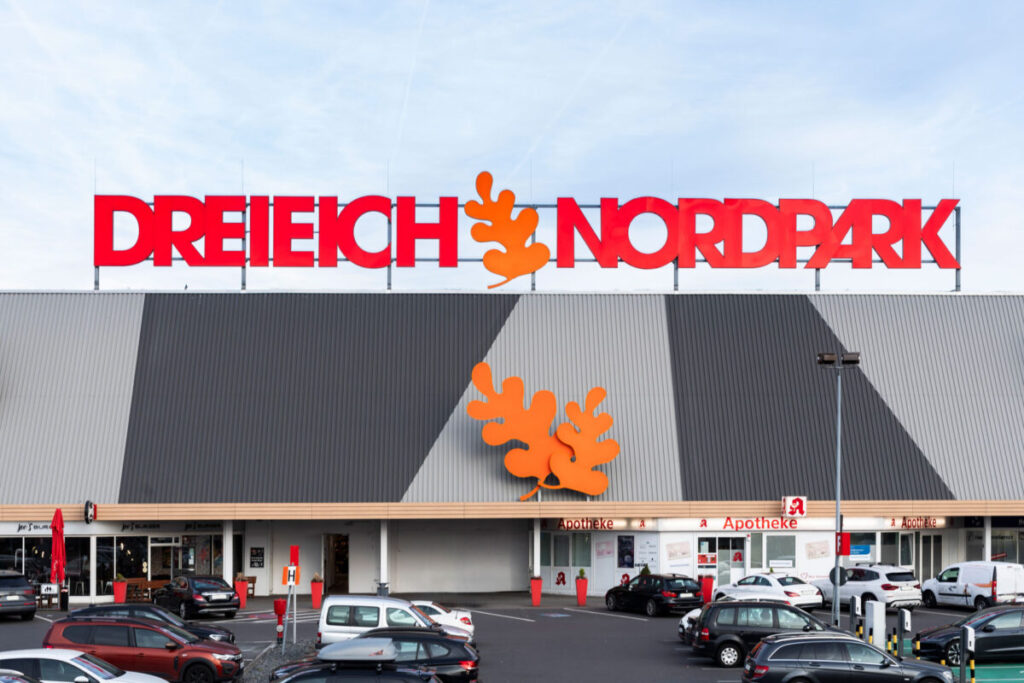
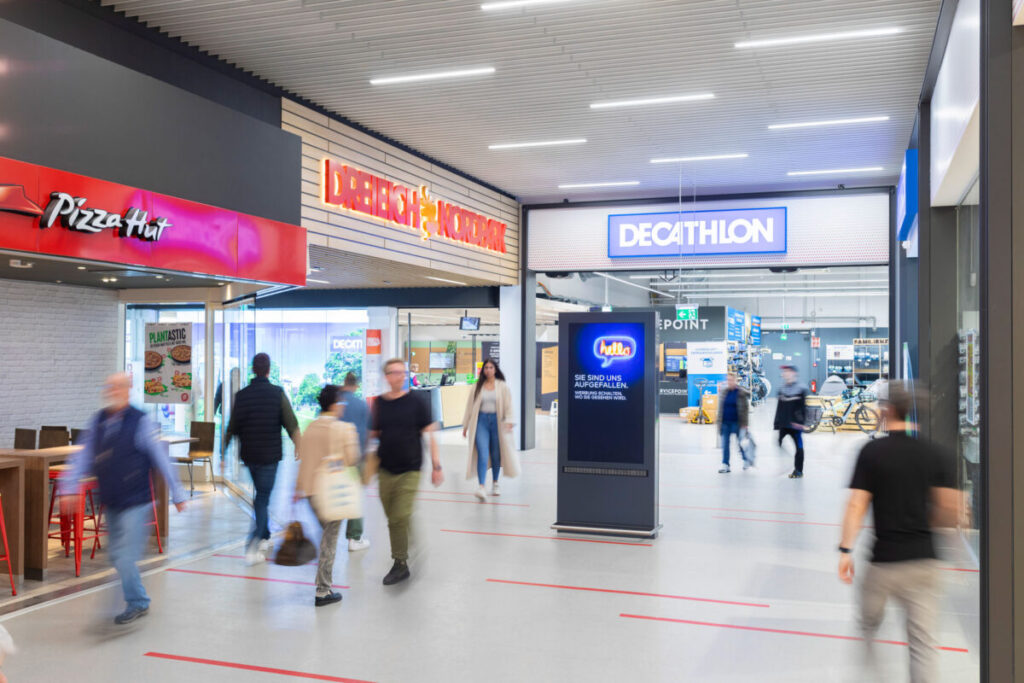
Dreieich Nordpark is a good example of how retail parks can be successful in the long term through the clever use of space and flexible tenant concepts.
STRATEGIC USE OF SPACE AND TENANT MIX
The Dreieich Nordpark example illustrates how important it is to flexibly react to changes in the market. The acquisition of Woolworth was crucial when it came to replacing the non-food range that had been lost due to the departure of Real. While Kaufland and Aldi covered the food sector, Woolworth ensured that the wide range of household goods, clothing, and other nonfood items remained available. That clearly reflects MEC’s strategy of adapting its tenant mix to the respective location in order to ensure
the success of a given center.
In the last four years, MEC has successfully re-let 15 former Real locations. The goal was never to replace the previous tenant on a 1:1 basis. Instead, the opportunity to expand the shop mix with additional tenants and to respond to new consumer needs was seized. The combination of food suppliers and specialized retailers, such as drugstores and pet shops, has proven to be a particularly viable solution.
THE GROWING IMPORTANCE OF BRANDS AND GASTRONOMY
Yet another major trend that MEC has observed at its retail parks is the increasing importance of brands for customers. The desire for well-known and trustworthy brands has also increased at retail parks in recent years. While they used to be seen primarily as pure supply centers, customers are now paying more attention to the selection of well-known retail brands. Well-known retailers contribute to the retail park being perceived not only as a supply center, but as an attractive shopping location as well.
The role of gastronomic offers has also gained importance in this respect. While traditional shopping centers have significantly boosted the proportion of gastronomy in recent years, that development has been somewhat slower at retail parks. Nevertheless, it’s clear that the demand for gastronomic offers is also on the rise at retail parks. However, the creation of large food courts is not the goal, but rather the targeted integration of one or two additional gastronomic concepts that complement the existing offering.
THE CHALLENGE OF LEASING SMALLER SPACES
While larger spaces of 400 sq m or more are generally in high demand, leasing smaller spaces poses a particular challenge. Many of those spaces are currently occupied by ownermanaged stores whose operators are steadily approaching retirement. That segment, which often consists of small fashion labels, bookshops, and perfumeries, has seen a decline in demand, making the development of new concepts necessary.
MEC, for example, is working hard to meet those challenges by attracting new tenants from other sectors and developing concepts that take the changing retail landscape into account. One such example can be found in the planned realignment of the tenant mix at Saarbasar in Saarbrücken, where new tenant groups are to be targeted in order to make the location fit for the future.
IN SUMMARY: CONTINUOUS ADJUSTMENT IS A KEY SUCCESS FACTOR
Even though the retail park asset class is more crisis-proof than other retail properties, developments in this real estate type prove that constant adjustment is essential. To a large extent, success depends on how flexibly it reacts to changes in consumer behavior and in the retail market. The tenant mix is key: Only through continuous optimization can a retail park be successful in the long term and offer stability to both investors and tenants.

Christian Thiele
Christian Thiele is the Head of Leasing Management at MEC
